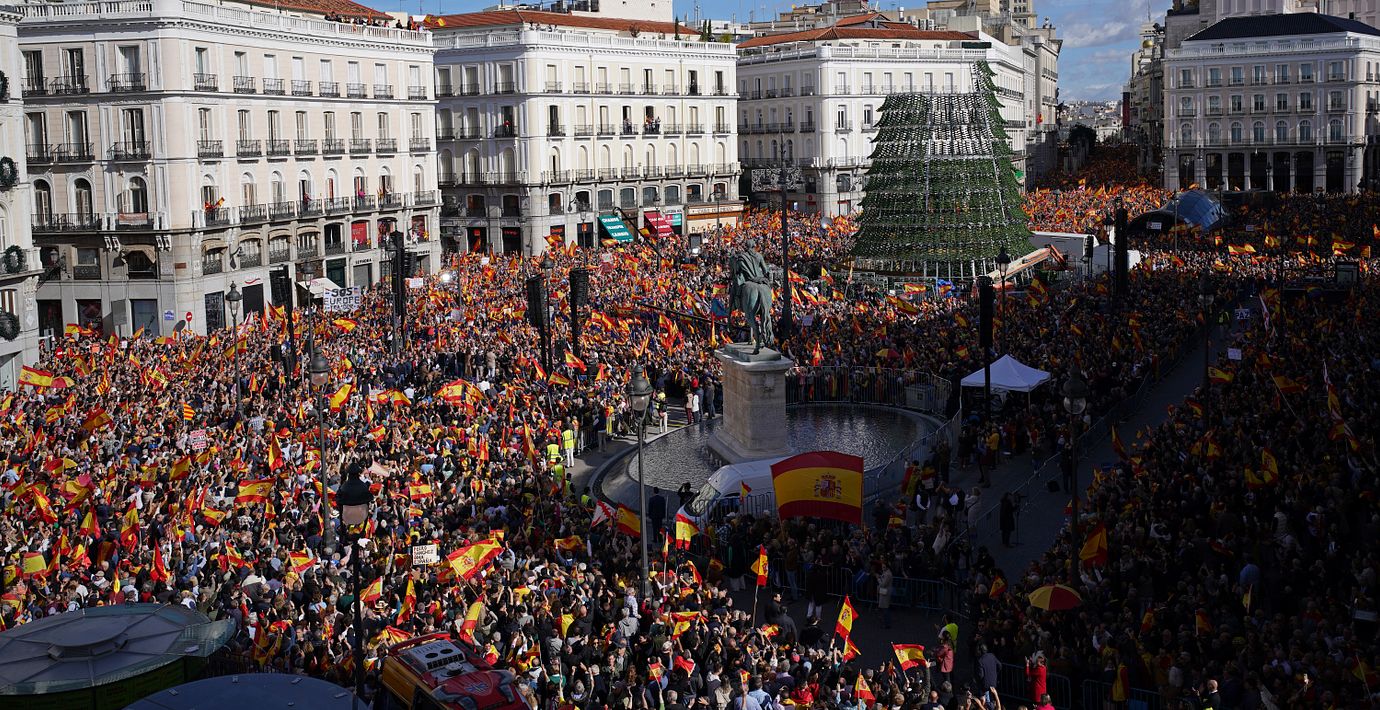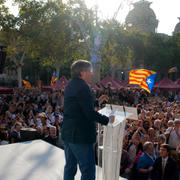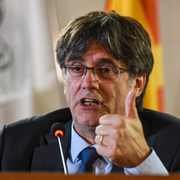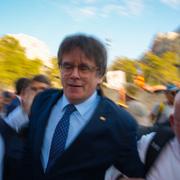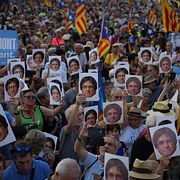bakgrund
Katalanska självständighetsomröstningen 2017
Wikipedia (en)
An independence referendum was held on 1 October 2017 in the Spanish autonomous community of Catalonia, passed by the Parliament of Catalonia as the Law on the Referendum on Self-determination of Catalonia and called by the Generalitat de Catalunya. The referendum, known in the Spanish media by the numeronym 1-O (for "1 October"), was declared unconstitutional on 7 September 2017 and suspended by the Constitutional Court of Spain after a request from the Spanish government, who declared it a breach of the Spanish Constitution. Additionally, in early September the High Court of Justice of Catalonia had issued orders to the police to try to prevent the illegal referendum, including the detention of various persons responsible for its preparation. Due to alleged irregularities during the voting process, as well as the use of force by the National Police Corps and Civil Guard, international observers invited by the Generalitat declared that the referendum failed to meet the minimum international standards for elections.The referendum was approved by the Catalan parliament in a session on 6 September 2017, boycotted by 52 anti-independence parliamentarians, along with the Law of juridical transition and foundation of the Republic of Catalonia the following day 7 September, which stated that independence would be binding with a simple majority, without requiring a minimum turnout. After being suspended, the law was finally declared void on 17 October, being also unconstitutional according to the Statute of Autonomy of Catalonia which requires a two-thirds majority, 90 seats, in the Catalan parliament for any change to Catalonia's status.The referendum question, which voters answered with "Yes" or "No", was "Do you want Catalonia to become an independent state in the form of a republic?". While the "Yes" side won, with 2,044,038 (90.18%) voting for independence and 177,547 (7.83%) voting against, the turnout was only 43.03%. The Catalan government estimated that up to 770,000 votes were not cast due to polling stations being closed off during the police crackdown, although the "universal census" system introduced earlier in the day allowed electors to vote at any given polling station. Catalan government officials have argued that the turnout would have been higher were it not for Spanish police suppression of the vote. On the other hand, most voters who did not support Catalan independence did not turn out, as the constitutional political parties asked citizens not to participate in the illegal referendum to avoid "validation". Additionally, numerous cases of voters casting their votes several times or with lack of identification were reported, and the counting process and the revision of the census were not performed with quality standards ensuring impartiality.The days leading to the referendum witnessed hasty judicial fights, and the High Court of Justice of Catalonia eventually ordered police forces to impede the use of public premises for the imminent voting. With conflicting directives, the referendum mostly saw inaction of part of the autonomous police force of Catalonia, the Mossos d'Esquadra, who allowed many polling stations to open while the National Police Corps and the Guardia Civil intervened and raided several opened polling stations to prevent voting. Early figures of 893 civilians and 111 agents of the National Police and the Guardia Civil injured may have been exaggerated. According to Barcelona's judge investigating those police violence, 218 persons were injured in Barcelona alone. According to the official final report by the Catalan Health Service (CatSalut) of the Generalitat, 1066 civilians, 11 agents of the National Police and the Guardia Civil, and 1 agent of the regional police, the Mossos d'Esquadra, were injured. The United Nations High Commissioner for Human Rights, Zeid Ra'ad Al Hussein, urged the Spanish government to investigate all acts of violence that took place to prevent the referendum. The police action also received criticism from Amnesty International and Human Rights Watch which defined it as an "excessive and unnecessary use of force". Spanish Supreme Court judge Pablo Llarena stated Carles Puigdemont ignored the repeated warnings he received about the escalation of violence if the referendum was held.Mossos d'Esquadra were investigated for disobedience, for allegedly not having complied with the orders of the High Court of Justice of Catalonia. Members of Mossos d'Esquadra under investigation included Josep Lluís Trapero Álvarez, the Mossos d'Esquadra major, who was investigated for sedition by the Spanish National Court. Mossos d'Esquadra denied those accusations and say they obeyed orders but applied the principle of proportionality, which is required by Spanish law in all police operations.
